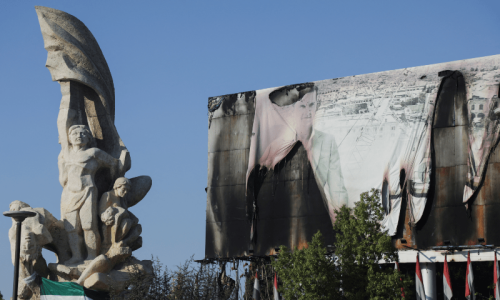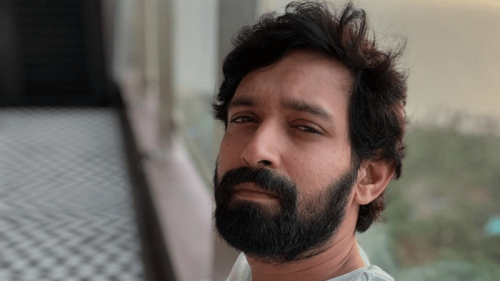HISTORIC polls will be held in Gilgit-Baltistan on Nov 15. Election fever has reached its peak with all contesting parties and independent candidates campaigning enthusiastically. Among the mainstream political parties, the PPP led by Bilawal Bhutto-Zardari was the first to kick off its campaign. The PPP has strong historical roots in the region. Zulfikar Ali Bhutto was the pioneer of reforms in GB. By abolishing the FCR, feudal rule and forced labour without pay, the PPP saw GB become a party stronghold. Benazir Bhutto introduced party-based elections there for the first time in 1994. Later, the 2009 reform order further strengthened the PPP’s position which resulted in the party’s landslide victory there in the following elections.
Bilawal Bhutto-Zardari has run a coherent weeks-long campaign in the region, addressing large gatherings in almost every district of GB. PPP leaders in GB are pledging to undertake mega infrastructure projects, tackle the power crisis in the region, provide due share of royalties from the Diamer-Bhasha dam etc. The most pertinent issue of GB brought forward by the PPP is that of haq-i-hakimiyat (right of rule) and haq-i-milkiyat (right of ownership).
According to GB advocate Basharat Ghazi, the GB Assembly’s legislations are endorsed by the joint secretary of the Ministry of Kashmir Affairs and Gilgit-Baltistan. Hence, it cannot pass legislation on local issues or promulgate any law unless the federal ministry approves it. The right of ownership is also complicated. From 1914-16, the Dogra regime settled cultivable land issues; they gave the rights of the land to locals in order to collect revenue. The remaining barren land fell under the ownership of the Dogra government. Post 1947, the government of Pakistan has yet to transfer property rights and ownership to the residents. Hence in many cases, they do not own the land on which they live.
Compared to the PPP, the campaign of the PML-N, that previously ruled in the region, is weak. Although its leaders take credit for numerous development schemes, many bigwigs of their party switched loyalties at the last moment. Being considered ‘electables’ they joined the PTI, the ruling party at the centre. To organise their party’s campaign, Shahid Khaqan Abbasi and Maryam Nawaz came to Skardu. With the arrival of Maryam Nawaz, the campaign gained some strength. She addressed a charged crowd of thousands. Vowing to fight for GB’s rights she criticised the PTI leadership for trying to steal the PML-N’s vote bank and taking credit for PML-N projects. She lashed out at Imran Khan for his announcement of GB’s provisional provincial status and maintained that it was Nawaz Sharif’s three years of hard work that had resulted in this announcement.
An educated youth population can change voting trajectories.
Imran Khan’s proclamation of granting GB provisional provincial status may be the highlight of the PTI’s campaign. However, it has been criticised by other parties as political point-scoring at the time of elections. Since the PTI is a relatively new party with no previous progress to showcase, this announcement was dubbed as a gimmick to gain votes. Awarding party tickets to ‘electables’ instead of pioneers of the PTI’s GB chapter has also turned off some supporters. Nationalist parties such as Balawaristan National Front, the Awami Workers Party and some independent candidates labelled this announcement as caprice and emotional blackmailing.
With such problems, the PTI’s election campaign in the region was taken over by the Federal Minister for Kashmir Affairs and Gilgit-Baltistan Ali Amin Gandapur. Violating the ECP’s code of conduct which bars public office-holders including ministers, the prime minister, president, chairman/ deputy chairman Senate, speakers/ deputy speakers of assemblies, governors, chief ministers, etc “to participate in election campaign in any manner whatsoever”, Ali Amin Gandapur addressed public gatherings in various districts. In a sign of further defiance, he announced the establishment of multiple new districts in GB. In persuading people to vote for the PTI’s candidates, he vowed to distribute billions of rupees in the constituency which gave a substantial lead to the PTI’s candidates.
Although the previous trajectory of GB’s polls shows that the party at the centre mostly forms the government, these polls are not projected to be an easy win for the PTI which is notorious for its U-turns, and for not having any road map to make GB a province. It is still struggling to gain the trust of the people. Nonetheless, on election day it will be the people who will decide. It should be noted that GB has a sizeable youth population which is educated and politically aware and has the potential of changing voting trajectories.
The writer teaches at the IBA and is the author of The Gilgit-Baltistan Conundrum: Dilemmas of Political Integration.
Twitter: @saj_ahmd
Published in Dawn, November 8th, 2020











































